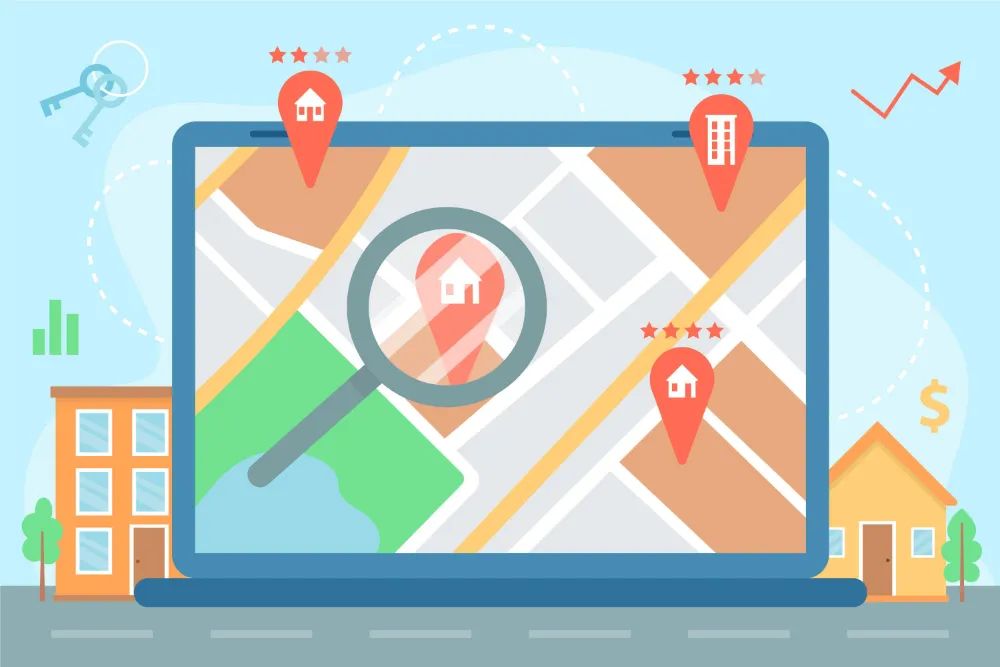Do you have a small business? If so, then online review management is something that you should not be ignoring. The importance of reviews and ratings for your business can’t be stressed enough – it’s an essential part to the success of your company. Reviews are important because they help consumers make decisions about whether or not they want to do business with your company. They also give potential customers peace of mind that what they’re purchasing will actually work and last them long term. In this blog post, we’ll cover why review management is so important for small businesses, how reviews affect growth, and some strategies on managing the process!
What is online review management?
Online review management is a process of monitoring and responding to reviews left about your company online by people who have either purchased or tried your products. Review management is important because it helps you ensure that the review being left is accurate and not abuse, while at the same time addressing any issues with what was said in the review, so customers feel more satisfied with their purchase.
What’s the difference between online review management and reputation management?
While review management and reputation management are both strategies to maintain a positive online presence, they’re different in some ways.
Review management should be considered part of your overall SEO effort. Online review management helps your business show up in searches, and it also helps with getting more clicks to your website. Additionally, review management is a strategy that can help build trust with consumers or clients, even before your business has interacted with them.
Reputation management on the other hand, tends to focus more on a more broad, overall presence online, which includes brand mentions and social media profiles.
What type of businesses should be doing online review management?
Basically, every business should be performing online review management. Online reviews have become more and more important in recent years and they play a significant role in business success. If you are a small business owner, this is even more true. Your online reputation, and thus your success, can be determined by what people say about you online.
What are the benefits of online review management?
- Reviews are a local ranking factor so it’s important to have a good review management plan. Online reviews actually help small business owners with local SEO (search engine optimization), and will help potential customers find your business via search.
- Reviews build trust and credibility.
- Online review management can also be an excellent way to get feedback from the customer and improve products or services based on their needs.
- Reviews help with conversions. It’s a fact that businesses with more positive reviews get more clicks to their website..
- Businesses can use online review management to turn unhappy customers into happy ones, and keep away the trolls. Trolls are people who will leave unfair or false reviews for your business purely out of spite because they don’t like you. By making it clear that these types of behaviors won’t be tolerated, businesses have a way to combat bad publicity.
What review sites should your business focus on?
Perform a review audit first
You should perform an audit to get an overall picture of your online reputation. An audit will let you know what you need to work on, as well as what websites or platforms you should focus on for improvement.
The reviews sites that need to be focused on are the sites where your customers or clients are finding you. For example, if you are a local business and your customers find you on Yelp then it is important to review the reviews that appear on the front page. You can not ignore this review site because they have already found you! The same goes for any other review sites where people may be finding out about your small business.
Keep in mind that each site may have different guidelines you must adhere to. For example, you can’t offer a payment, gift card or the like on Google. If they find out you are ‘paying’ for reviews, you could be penalized. Just check to make sure you are playing by the rules.
Here are some examples of the top sites and review platforms:
- Google Business Profile : Google reviews definitely need to be at the top of your list. Google reviews appear on all of the Google platforms including maps, search and YouTube videos. The GMB dashboard will help you manage your online reputation by providing insights into local rankings, trends in your area and customer feedback to name a few features available through this free program. You can get started by signing up for a GMB account and adding your business information.
- Facebook: Facebook is a great place to review your business. You can add and update reviews on the company page, which will show up in search engines like Google after linking both profiles together through their social media platform.
- Yelp: Yelp has been around since 2004 and they are currently available in 77 countries. It’s one of the most popular review sites and was the first site to offer a platform for people to leave reviews about businesses.
- Bing: Bing has reviews from people in your area.
- Apple Maps: Apple pulls and displays reviews from Yelp and other sites.
- Nextdoor: Nextdoor is a private social networking site for neighborhoods. It’s designed to keep people informed about local happenings, but it also includes reviews.
- Industry-specific sites: You should also look to see if there is a review site or two specific to your business’ industry. If you find some that are active, they would be a more targeted way to generate reviews.
Core Components of Review Management
- Generate reviews
- Monitor reviews
- Respond to reviews
- Use reviews to grow your business
Generating Online Reviews
Protecting your online reputation is essential to building trust for your business. Let’s face it, the chances are that every not customer is going to be totally satisfied with your products or services. But in the event that they are not, their review can have a significant impact on your business’ online reputation and future success—especially if it’s posted to one of the most popular review sites like Yelp or Google. These negative reviews can be combated though, by getting more positive ones.
Businesses cannot be passive when it comes to getting reviews. It is important for businesses to develop a culture of reviews and feedback.
How to generate reviews
The first thing you should do is develop a strategy for generating online reviews. This is a critical component of review management. This may include asking your customers for feedback in person, or developing an outreach strategy to get more online reviews. There are some great tools available that can automate most of the process of requesting reviews online.
One tool we like and use is More Thumbs Up (our tool). With More Thumbs Up, you get the following benefits:
- See all reviews and ratings in one place (from multiple review platforms and social media platforms)
- Encourage positive reviews and discourage negative reviews
- Respond to reviews within the management platform (Google and Facebook)
- Notification of new customer reviews so you can respond in a timely manner
- Filter and embed customer reviews on your website
Using a review management platform like More Thumbs Up is a great option for local business owners, because it saves time and can actually help grow your business.
Monitoring Online Reviews
Generating reviews is important, but so is monitoring reviews. Monitoring reviews can help you measure your performance against competitors, identify and respond to customer service issues before they blow up online, and ensure that customers are happy with the level of support provided by your team.
With reviews scattered across the internet, it’s easy to lose track of, or not see them altogether. Fortunately, review management software can help you consolidate reviews from multiple sources and make them readily available on a dashboard or within an app.
Many of the review management tools available provide alerts about new reviews. If you are able to respond quickly, and resolve any issues that are pointed out in the review, it will not only be a good experience for that customer, but also make them likely to post another review or recommend your business in their network of friends and family members.
It is also important to monitor for review spam. Review spammers will often post numerous reviews about your business, but they are not even customers of the company! Use online review management software to identify and filter out these posts so that you can focus on legitimate customer feedback.
Responding to a review
The manner in which you respond to online reviews is a critical step in managing your reputation. A negative review, even if you feel that it’s unjustified and unfair, can be challenging to address (especially for small business owners with limited resources). In order to respond appropriately, there are some ground rules you should follow:
Don’t attack the reviewer or make offensive comments. Remember, everyone else will see your response.
Respond to negative reviews with a solution to resolve the issue, if possible. Your response might be “We apologize for the inconvenience. Our phone is on, so please call us and we’ll do our best to resolve it right away.”
If you can’t offer a solution, acknowledge that there’s nothing you’re able to do. Say something like, “I’m sorry about your experience. We appreciate feedback from every customer, as it helps us understand where we can make improvements.
The most important thing is to stay professional. This will help you build a positive reputation and increase customer confidence in your brand.
Using reviews and ratings to grow your business
Now that you are monitoring and generating reviews, what’s next?
The next step is to use the online reviews you’ve earned. Here are some ideas:
- Use your reviews to generate more sales. Reviews on Google, Facebook, Yelp and other platforms will help build trust. It will be easier to sell to people once they trust your business.
- Find out what customers like and don’t like about your products or services, so you can improve them. Reviews online provide valuable insight into what people think about your products or services. Think of them as a customer satisfaction survey. You can save this feedback in a spreadsheet and either use it as a way to gauge and improve you service, or use it to create a Q&A.
- Use reviews as a way to engage with your customers. Use review replies to comments and customer feedback to spark conversations. Reviews on social media platforms are a great way to create engagement, as well.
- SEO: When you reply to a customer review on Google My Business, inject keywords you want to renk for.
These days, your review management strategy is more important than ever. With online reviews being such a crucial part of customer trust and acquisition, it’s imperative that you set up the right steps to make sure your business thrives in this new arena.
Putting together a strategy and not leaving it all up to the customer can help improve your online reputation boost your chances of success.
Engaged Digital offers reviews management services that help improve your reputation online and get more clicks to your website.
Talk to Engaged Digital today about review management and how it can help. Click HERE to get in touch and let’s schedule a call.







